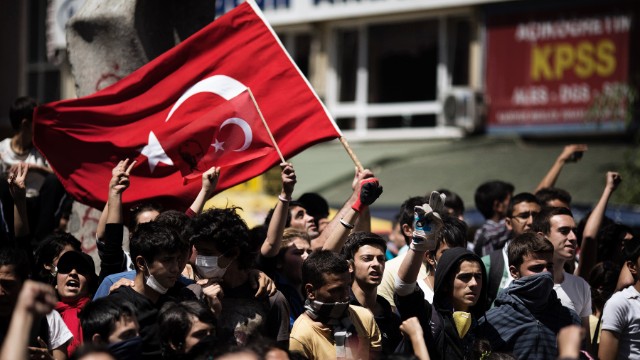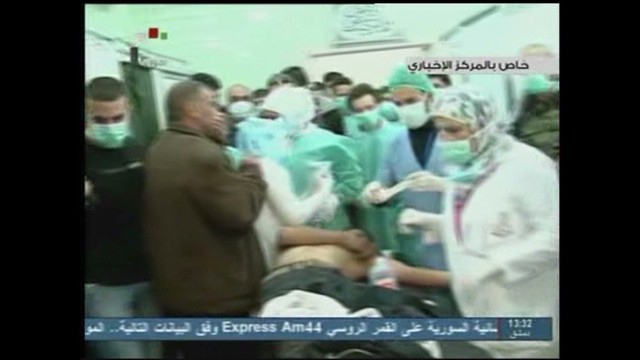Turkey's Erdogan: Successful leader or 'dictator'?
-- He's perhaps the most powerful and popular politician Turkey has seen in generations. But Prime Minister Recep Tayyip Erdogan may also be the most polarizing.
And now, the man who boasts economic and political accomplishments during 10 years in office is fending off complaints from large crowds of protesters that he's turning into a "dictator."
"The only thing that we want," said one of the thousands packed into anti-government demonstrations in Istanbul, "... we want him to resign."
The editorial board of The Washington Post said Erdogan "is offering unfortunate proof that it is possible to be both elected and authoritarian."
His accomplishments in office include unprecedented economic growth in Turkey.
France: Tests show sarin used in Syria
Sarin gas has been used in Syria several times, French Foreign Minister Laurent Fabius said Tuesday, citing results from test samples in France's possession.
Fabius announced that conclusion after meeting Tuesday with the head of a U.N. mission set up to establish the facts about alleged use of chemical weapons in Syria.
"I gave him the results of tests carried out by our lab appointed by the Organization for the Prohibition of Chemical Weapons to identify chemical warfare," Fabius said in a statement, referring to the Swedish scientist, Prof. Ake Sellstrom.
"These results show the presence of sarin in the samples that are in our possession," Fabius said. "In view of these elements, France now has the certainty that the sarin gas was used in Syria several times and in a localized manner."
The announcement did not say when, where or by whom it may have been used in Syria, where rebels have been fighting the regime of President Bashar al-Assad in a civil war.
The announcement coincided with the release of a draft report posted on the website of the U.N. Human Rights Council that concludes: "There are reasonable grounds to believe that chemical agents have been used as weapons. The precise agents, delivery systems or perpetrators could not be identified."
In Washington, White House Press Secretary Jay Carney said the United States was working with the French and other allies as well as the Syrian opposition to determine those answers.
"We need to expand the evidence we have," he told reporters Tuesday. "We need to make it reviewable; we need to have it corroborated before we make any decisions based on the clear violation that use of chemical weapons would represent by the Syrian regime. So, we will continue in that effort."
Asked how long that might take, he said, "I don't have a timetable for you."
He noted that Damascus has consistently turned down U.S. requests for a U.N. investigative team to be sent to Syria.
"But we are not relying on the United Nations alone," he said. "We are aggressively pursuing other avenues to gather the evidence that is required."
Earlier this year, the United States said its intelligence analysts had concluded "with varying degrees of confidence" that chemical weapons had been used in Syria. But President Barack Obama said "intelligence assessments alone are not sufficient."

